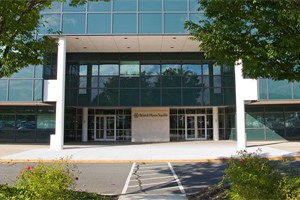 Bristol-Myers Squibb has reported positive phase II results for its drug for non-alcoholic steatohepatitis (NASH), which is shaping up to be a major battleground for the pharma industry.
Bristol-Myers Squibb has reported positive phase II results for its drug for non-alcoholic steatohepatitis (NASH), which is shaping up to be a major battleground for the pharma industry.
NASH – a progressive form of liver disease characterised by the accumulation of fatty deposits and fibrosis (scarring) – is predicted to overtake viral hepatitis and alcoholism as the leading cause of liver transplants by 2020, and affects millions of people around the world causing cirrhosis and liver cancer in some patients.
With no approved therapies, pharma companies are developing dozens of drugs to try to tap into what some analysts predict could progress into a $35bn market in the coming years, and there has been a deal frenzy with bigger companies napping up promising assets from smaller players.
Now BMS’ ambitions in this endeavour have been boosted by a positive phase II trial for BMS-986036, a pegylated (long-acting) formulation of human fibroblast growth factor 21 (FGF21) in patients with NASH.
16-week data from the 74-patient study reported at the International Liver Congress (ILC) in Amsterdam, show that BMS’ drug was able to achieve a significant reduction in liver fat compared to placebo, and there were also improvements in serum biomarkers for liver fibrosis and injury, as well as liver stiffness which is another surrogate marker for scarring.
For good measure the drug treatment also seemed to improved patients’ blood lipid profiles, with triglycerides, low density lipoprotein (LDL) and high density lipoprotein (HDL) cholesterol all shifting in the desired direction.
Previously, BMS reported phase II data for BMS-986036 in diabetic patients, and with two positive trials in hand the company says it is “looking forward to sharing these data with health authorities to determine next steps for further study of this asset”.
Other companies reported positive results from NASH trials at the ILC meeting, including Merck & Co-backed NGM Bio which reported phase II data on FGF19 candidate NGM282, and Gilead Sciences which presented the first clinical data on ACC inhibitor GS-0976.
These earlier-phase candidates are chasing drugs in the latter stages of development including Gilead’s ASK1 inhibitor selonsertib, Allergan’s recently-acquired CCR2/CCR5 inhibitor cenicriviroc, Genfit’s PPAR agonist elafibranor and Intercept’s Ocaliva (obeticholic acid), which is already on the market for another indication (primary biliary cholangitis).




